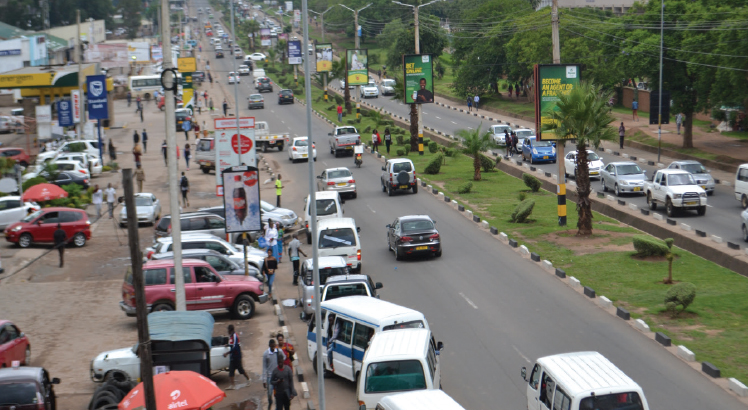Tackling rising street terror
On August 14 this year, the police in Blantyre yet again filed a report of a university student attacked by suspected street connected children or young people.
The victim was Grayson Phiri, a final year mechanical engineering student at the Malawi University of Business and Applied Sciences (Mubas).

He had been robbed and knifed around 5pm by a gang along Chipembere Highway in Chichiri.
He recounts: “I was on my way to my hostel in Chichiri, coming from St Pius on Sunday, August 13. Six to eight men in their early 20s suddenly surrounded me, demanding my possessions.
“They snatched my phone and food. When I tried to fight back, they unsheathed knives and threatened to kill me. Luckily, I escaped unhurt.”
Phiri reported the incident to Mubas authorities and the police.
The fifth year student and his peers mounted a patrol the same evening.
He said: “I was trembling when I rushed to my room and shared the ordeal with my friends. We went back to the scene hoping to recover my phone. We caught three suspicious men near Chichiri Southwest Region Police Headquarters and took them there for interrogating.
One of them allegedly confessed knowing one of the robbers.
A week later, Phiri told The Nation that the police had not given him any update on the case despite having a possible witness.
Mubas students have been complaining of attacks and robbery for years, with scanty efforts from university authorities and law enforcers.
On August 15, Student’s Union President Wyson Vinthenga threatened that the learners would take the law into their hands to deal with street-connected children and tighten security at the public university.
However, the resolution was condemned by many as mob justice.
Despite the rising complaints, few cases get reported to the police. This reduces a sense of urgency among law enforcers, says Blantyre Police Station spokesperson Peter Mchiza.
He says: “So far, we have received three cases involving children aged nine to 19. Those above 18 years are separated to answer the cases as any other individual.
“Without receiving reports, we cannot go to the streets and arrest all the children.”
When the police take the street-connected children to court, magistrates refer minors to safer homes in Mpemba, Bvumbwe and Kachere.
“Some of them escape from the hands of people who man such places, not the police,” he says.
Mchiza says every citizen has a duty to report suspicious characters and offenders.
“Report to police and we will do our job,” he says.
However, political scientist Wonderful Mkhutche urges caution in the battle to make the streets safe for all.
“We should not be obsessed with arresting the street children and their parents, but take the difficult decision to deal with the root causes,” he says.
Mkhutche argues that recognising the harsh environment in which the street-connected children are raised and the economic disruptions contributing to security threats are crucial.
He states: “Poverty and broken homes are some of the factors fuelling the rise in numbers of street children. For the sake of survival, they look to the streets. This affects them psychologically.”
The commentator urged the government to provide a second home for street-connected children and ensure that they are educated and trained to become productive citizens instead of future criminals.





